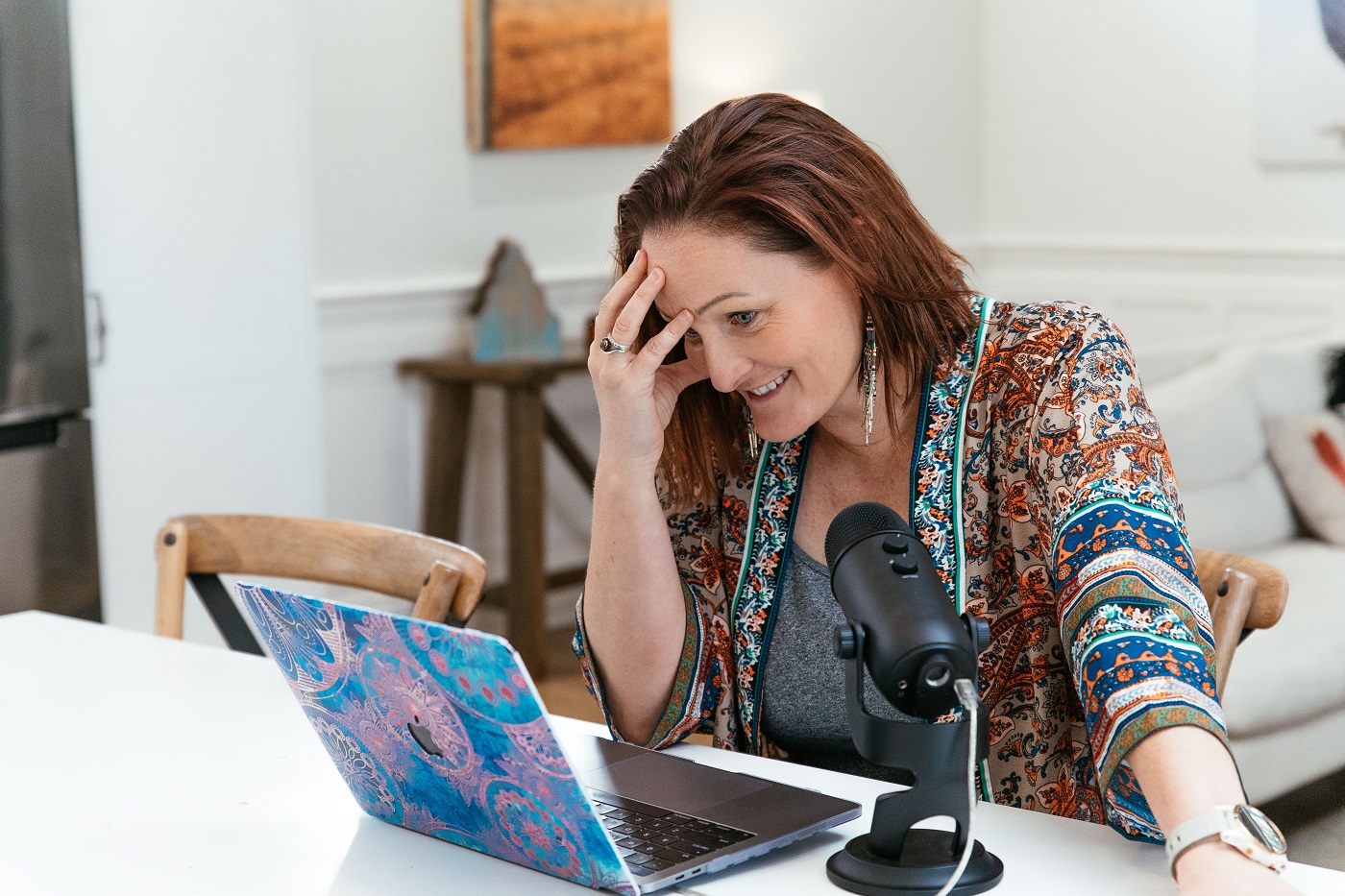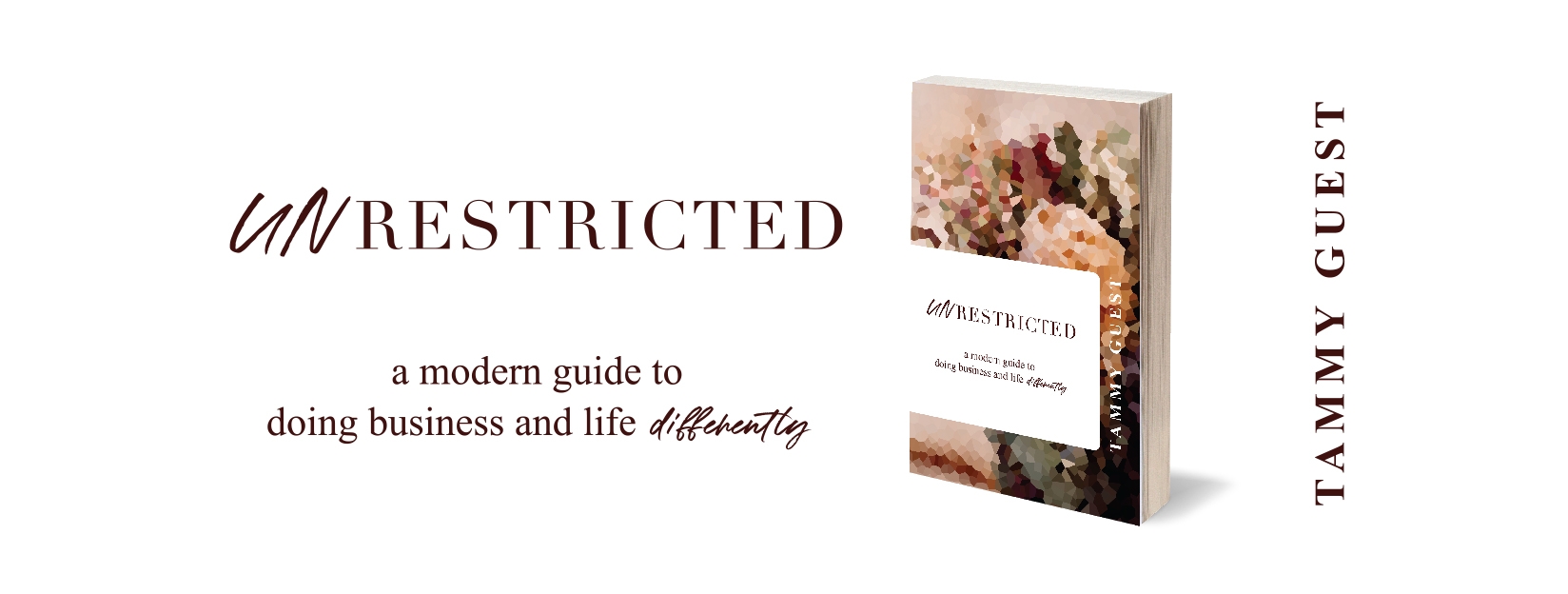This is one of the most awesome conversations I’ve shared in a while. I’m sharing some of the dumb decisions and mistakes I’ve made. So read on (or watch the video) for what you can learn from my money mistakes in business.
There is a lot of shame and ickiness when these topics are hidden in the background instead of being talked about. It changes the way that we show up in our business, the way that we think of ourselves, and how valuable or worthy we feel we are to make other decisions in our business.
So let’s bring this conversation out into the open.
How do you spend money on your business?
In my career as a business owner, I have spent all sorts of money on all sorts of things. And I have totally had shame in the background.
What happened was that shame stopped me from having really important financial conversations, initially with my husband. Then, it also stopped me from having really important conversations with my bookkeeper and other people who were involved in my finances. Then it stopped the flow of abundance and energy when it came to people coming in and seeing me, as well as money coming into and out of my business.
When I started having the conversations I needed to have and noticing that I wasn’t alone in this, the feeling of shame was released.
The reality is that every single person who has owned a business has made dumb decisions with their money. And trust me – you’re going to learn 5 to 20 times more from making a dumb decision than from making the best decision in the world and then just going on your merry way.
Embrace the dumb
It’s really, really important to embrace the dumb, the suck, the money mistakes, all of the shame, and get it out into the open. Move forward and forgive yourself for these things because there are opportunities on the other side of it for all of us to learn from – so we don’t all have to make those same mistakes!
It also creates an abundance. It unblocks that blockage and so flow can continue to happen.
These money conversations always bring up all sorts of stuff for us. As a profession of healers, we’re used to having the conversations hush, hushed. There are so many different stories in our heads about how:
- we’ve got to have it all sorted
- we should know better
- everything should just be given away for free
And all of the other stories that go with it that are not helping anybody.
My biggest money mistakes
So, let’s have one of these conversations out in the open today!
My biggest dumb choices come into about five different categories – and I have categorised them for you!
Category 1: Offline Business
Who here has bought supplies and products that have a shelf life?
And you’re so excited by it because they’re either new or they had a 5+1 deal or you really wanted to make an amazing product from it. So you bought a whole bunch of that stuff! You might have bought an entire dispensary, way before you were ready. You might have a whole wall of herbs past their expiry date that are now in your pantry.
Buying supplies and products with a shelf life
One of my favourites was when I decided I would make teas. The teas were such a great idea! You know, it was all grown in Australia in the highlands of Tasmania. The herbs would just be divine and lovely. I could not only make teas out of it, but I could also make creams in all my spare time!
There was literally five kilos of marshmallow root and marshmallow leaf just falling to pieces, turning brown, and turning into compost in my kitchen.
So I have totally been there.
I also had herbs that I just had this affinity for, that I really wanted to have, that nobody ever came in and used. So I ended up having them sitting in my pantry until I went volunteering in Vanuatu and I could give it to them.
There are so many things that have a shelf life. If you haven’t started your clinic yet or if you’re a newbie, this is a big lesson for you. Things have a shelf life. When it comes to stocking retail products or other things that will be on the shelf, you can continue to put them on the shelf as long as you have customer demand.
But if you don’t have customer demand, don’t put it on the shelf too early. Because from the second they go on your shelf, they will literally be going out of date. That was a massive lesson for me when it comes to stock retail stock.
Money Mistakes Lesson: If people are asking for something, bring it on board in small amounts. Then, if people continue to ask for it, bring on even more.
Investing in your clinic
Another thing related to working offline is around what you invest in when it comes to your clinic.
One of my amazing viewers, Emily, shared about installing a $900 wall in her first rented and leased clinic space. Then she had to spend about the same amount when she left that clinic space to pull that wall down.
There are different agreements that apply when you are leasing a ‘brick-and-mortar’ space. You have to have a shop fit-out at the beginning, which takes a bit of time and money. Then, you’ve actually got to pull that down in some cases when you leave. So it’s really important that you’re trying to create the Taj Mahal when literally six months later you might move because you’ve done so well that you need a new space.
I have been there. I got an amazing mural painted on a wall and then six months later, I actually moved. So consider what you are spending your money on in your clinic space.
Money Mistakes Lesson: Look for where you can get a return on investment (“ROI”).
I know this might make some of you shut down because we’re talking “money stuff.” I used to do this whenever anyone said ROI. If this is you, just lean in and try to hear what I’m saying.
ROI is a return on investment. There’s a difference between spending money and investing money. Spending means it’s not going to come back. Investing money means you put some in and some will come back.
What you want to do is to get the return on the investment. So just like a boomerang, if you throw it with more skill and more speed it will come back. So what you have to look at when it comes to all of the things that we’re talking about, but especially the things that happen to be hard costs in your clinic, is will there be a return on the investment that you make?
Especially if it’s an aesthetic thing. If it’s a functional thing like updating your kitchen so you can do workshops in it, you can see that you would invest and it would take a certain amount of workshops earning money to pay back the investment you made on the kitchen.
It’s really important to think about how much money you’re putting into say, for instance, a wall just because it looks nice versus a wall that splits a room into two very functional clinic rooms. You could rent out another clinic room and that might be a better return on the investment than just putting something up that looks pretty.
Testing equipment
Who here has gone and bought:
- an iridology camera
- a biocompatibility thing
- or some type of testing equipment?
This isn’t about which one is better. It’s totally about finding what’s in alignment with you.
I know lots of people who have bought, say, a microscope and they have had a hard time because it wasn’t in alignment with them. My iridology torch sat with used batteries that never got replaced in the drawer because it just wasn’t my thing. It’s not in alignment with the way that I practice. My background is in medical science and pathology so as soon as I invested in the microscope, I instantly got people coming through and the microscope got paid off.
Some of you who are thinking, “Yep, I’m the one that bought the iridology camera that is now a beautiful dust collector over in the corner of the room” – there might be something else that you’ve got that you use with every single client that you couldn’t possibly live without. That’s the thing that’s giving you that return on investment.
Money Mistakes Lesson: It’s very important when you are considering what testing equipment to bring in to your business that it’s in alignment with you.
When are you thinking about making a big purchase for your business, consider:
- the things you loved learning about in your qualification
- love hearing about when you go to see a practitioner
- things you might study on the side
- your background
Because if it’s not in alignment with you, it is literally going to be one of the most expensive dust collectors that you have. If you do have one of those, it might be time to sell it to somebody here in the Hub or somewhere else so that it’s helping somebody instead of being your dust collector.
If you’ve still got the thing that isn’t in alignment with you hanging around, it’s creating a little squeeze on the flow of money and abundance coming through. Because you’re still stuck with it, feeling the shame about spending a ridiculous amount of money on it and it’s literally sitting there collecting dust not helping anybody. So if you can find somebody else who can benefit from it, then let it go.
Category 2: Online Business
Raise your hand if you’ve ever bought a course that you didn’t complete!
Hi, my name is Tammy and I’m a course addict. I have bought many a course that I didn’t complete. Many, many, many a course. Where do I begin?
I bought courses that were not very much money that I fully completed and went all out in. And I bought courses that were extraordinary amounts of money that I found out halfway through or even after the first module that I either didn’t have time, energy, or alignment for that particular course at that particular time and it just went into the course file. A lot of people can relate to this, right?
We are all learners. That’s one of the reasons that we are so good at our jobs because we are lifelong learners. Whether it be through podcasts, books, or qualifications (many of us have multiple qualifications), it is rampant that we go and try to get more, more, more information.
But I’m not going to deep dive into where this need comes from because it’s too deep a topic for this little training.
4 things to consider when looking at a course
I always suggest looking for information about business as much or more than finding information about our clients’ health and well-being. From a business aspect buying a business course, coach, or any kind of business teaching is usually amazing, if you consider these four things:
- Do your research about the person teaching the course
Just like when you go for a qualification, you would research which college has what and what courses they’re teaching. The same goes for online courses. You need to resonate with the way the instructor teaches because the way they’re teaching you is what you’re going to absorb. You need to have admiration for the journey they’ve taken, and they need to have shared the journey with you. There needs to be transparency about how the person got there to know that is a journey you want to take. The very best is if you know somebody who has done that course. A word of mouth referral is a much better opportunity than to trust a random Facebook ad. - Don’t fall for Scarcity Mindset
A scarcity mindset is feeling like if you don’t do it now, you won’t ever be able to do it. That’s just not true. If you later decide you want to take a course on this, one will be available. Whether it’s this instructor or a different one. If you look around, you’ll see that there are likely tons of similar courses available. Check in with your vibe and your intuition to see if this is the course – and if this is the time – for you. - Make sure it is being taught in a method that allows YOU to absorb the information
I have signed up for courses before where the information was all written. I don’t have time to read stuff like that! And I don’t want to print out half a rainforest worth of paper and have to filter through modules and modules of stuff. It’s critical that the course is in alignment with the way you work. If you’re an auditory person, you might realise you listen to podcasts most often. Look for an audio-book or for a course that is available in audio files so you can listen, if that’s you. For audio-visual people, see if the course is being taught with videos. If you are a written person, make sure they’ve got that part in there for you. So, do your research about the format it’s being presented in to make sure you can get the most out of it. - Realise that the course isn’t the thing. You are the thing.
This is the most important one. Just like losing weight – any diet will work if you do it 100%. All those MLMs and programs that we all roll our eyes at, there are people out there who get results with them, because they go in 100%. Owning your responsibility of getting what you need from a course is just as important as the course itself. It is your responsibility to follow through and take action. So when you buy a course, make sure you are willing to commit 100% to doing the work. If you only put in 10%, you’re only going to get 10% out. If you put in 100% energy and effort, you will get a result.
Money Mistakes Lesson: Do your research before buying courses or coaching.
Social Media
Social media marketing is an ever-evolving, revolving, revolution, evolution, algorithm-driven, crazy space to be in. At the moment, it is a really great space to throw a whole bunch of money away. The thing about social media, and marketing in general, is that it’s a huge thing with a lot of facets. Just like detoxification is a huge thing. It’s not just a matter of taking some St. Mary’s Thistle.
Social media marketing can be a money pit and just the same as we were talking about regarding signing up for courses or business coaches, it’s really important to do your homework about:
- the people you are signing up to work with
- whether they’re in alignment with you
- what type of results they’ve had before
- how they got those results
- and what your ROI will be
The cool thing about social media marketers and virtual assistants and other people in that space is that you can have a contract making sure that you get a certain result from what you’re investing. I didn’t know that until I spent a whole bunch of money on somebody that did not a lot and didn’t teach me what was going on in the background.
But then, on the flip side of that, I spent some money on someone who taught me at the same time they did the work. And it got a better result because then I was aware of what was happening in the background. So I could share it with other VA that I brought on board for my business.
Money Mistakes Lesson: It’s really important that if you are going to do something, that you have a little bit of knowledge around it. Just as we would empower a client and not just give them some St. Mary’s Thistle, we would give them some education and background about what type of results could be likely and what we’d expect to see. It’s a really similar kind of scenario.
The absolute biggest waste of time, energy, and money in my business
What do you think the absolute biggest waste of time, money, energy, and printer ink has ever been in marketing my business?
The biggest waste of time and energy for me was a letterbox drop!
I spent money and time on this beginning right when I started my business. I see others doing this all the time as well and I’m heartbroken for these poor people.
Lesson: Don’t waste money on doing a letterbox drop!
Your people, the people who are waiting to hear from, are NOT looking for a printed piece of paper that arrives in their letterbox.
They ARE waiting to hear from you, but in ways that are heartfelt. Such as sharing your knowledge:
- in the shopping line at the chemists when they are looking for something to help their IBS
- at your local gym they are waiting to hear the tiny piece of information that will get them started
- in front of the school when someone mentions something you know you can help them with
- and they are waiting for you to show up online and share your story
But they aren’t at their letterbox waiting for a piece of paper from you.
Money Mistakes Lesson: Please don’t do a letterbox drop. I don’t want anyone else to waste their time on that.
The more mistakes you make, the more you learn
I do want you to invest your time in looking after your that shame that you might feel about mistakes you’ve made. If you’re in business, the fact is that you’ll make mistakes. And the more mistakes you make the more lessons you’ll learn and the better off you’ll be as a human being and as a practitioner.
I want you to invest your time in people who are open and willing and ready to hear from you. That really want to do something about their health. I don’t want you to waste your time with people who argue or debate whether natural therapies even exist. It’s a waste of your time.
You could be spending so much more time connecting with people who are waiting to hear from you. Are gagging on every single piece of information that’s coming out of other countries or online or other spaces. But they want to hear it in your particular flavour in your particular way through a medium that you’re already on (whether that’s on social media on your website or in a conversation).
Own your money mistakes and then move on to bigger and better things
I’m really moved when people put their hands up and say, “Yep, me too. Yep, this is real.”
We can recognise our mistakes and then move on and do bigger and better and more amazing things to help more people. It’s good to move through this stuff that’s going on in the background so we can help more people. It’s really important!
Please share
I appreciate everybody showing up for these conversations. It’s so cool to know that you’re not alone, to know that everyone’s here, and we all make mistakes. We can learn together so that our profession can continue to rise and help more and more people.
I hope this has been beneficial to you and if it has or you know another practitioner or somebody else who needs to hear this, please, please share it! These are the conversations that we need to have.
If you are not subscribed to my YouTube channel, please go straight over there and subscribe so you don’t miss any future videos.
Learn More
Looking for more about money for natural practitioners? Check out these free resources.
- Read the latest posts about making money as a practitioner
- Download my Free Money Management Planner









Leave A Comment